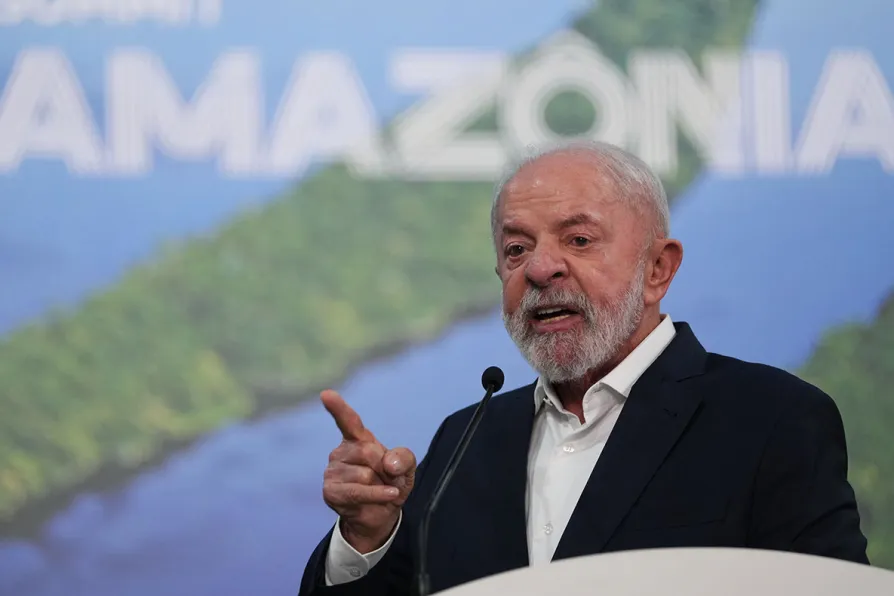
 Brazil President Luiz Inacio Lula da Silva speaks during a news conference at the COP30 U.N. Climate Summit, November 19, 2025, in Belem, Brazil
Brazil President Luiz Inacio Lula da Silva speaks during a news conference at the COP30 U.N. Climate Summit, November 19, 2025, in Belem, Brazil
THE arrival of Brazilian President Luiz Inacio “Lula” da Silva at the United Nations climate talks in Belem on Wednesday was hoped to spur nations to meet a self-imposed early deadline for progress on tough issues.
The move does not appear to have worked.
At a news conference on Wednesday night, Lula renewed his earlier calls for action, making the case to Cop30 delegates that the world must reduce its use of fossil fuels such as oil, gas and coal.
“We haven’t found another place to live,” he pointed out.
The Brazilian president and several other leaders are pushing to create a road map for the transition to renewable energies. But in his remarks he was careful to say that there was no intention to “impose anything on anybody,” that countries could transition at their own pace and count on financial help to do so.
Cop30 president Andre Correa do Lago had given negotiators a Wednesday deadline for a decision on four interconnected issues that were initially excluded from the official agenda: whether countries should be told to toughen their new climate plans, details of the distribution of $300 billion (£229bn) in pledged climate aid, dealing with trade barriers in relation to climate change and improving reporting on transparency and climate progress.
Many countries are also pushing for a detailed road map on how to phase out fossil fuels, an issue that is key to toughening new climate plans to keep alive hopes of limiting future warming to 1.5°C, the goal set by the 2015 Paris Agreement.
On Wednesday. a group of scientists criticised current proposals for a fossil fuel phase-out road map as inadequate, particularly to reach the goal of zero fossil fuel emissions by 2045 at the latest.
“A road map is not a workshop or a ministerial meeting. A road map is a real workplan that needs to show us the way from where we are to where we need to be and how to get there,” said a letter from seven prominent scientists, including some who are advising the Cop30 presidency.
Iskander Erzini Vernoit, director of the IMAL Initiative for Climate and Development, an independent think tank based in Morocco, said: “Various apparent impasses still remain and chief among these from an African point of view is the unwillingness of the European Union and other rich countries to engage on their obligation to provide climate finance.”
Cop30 is due to end tomorrow.










